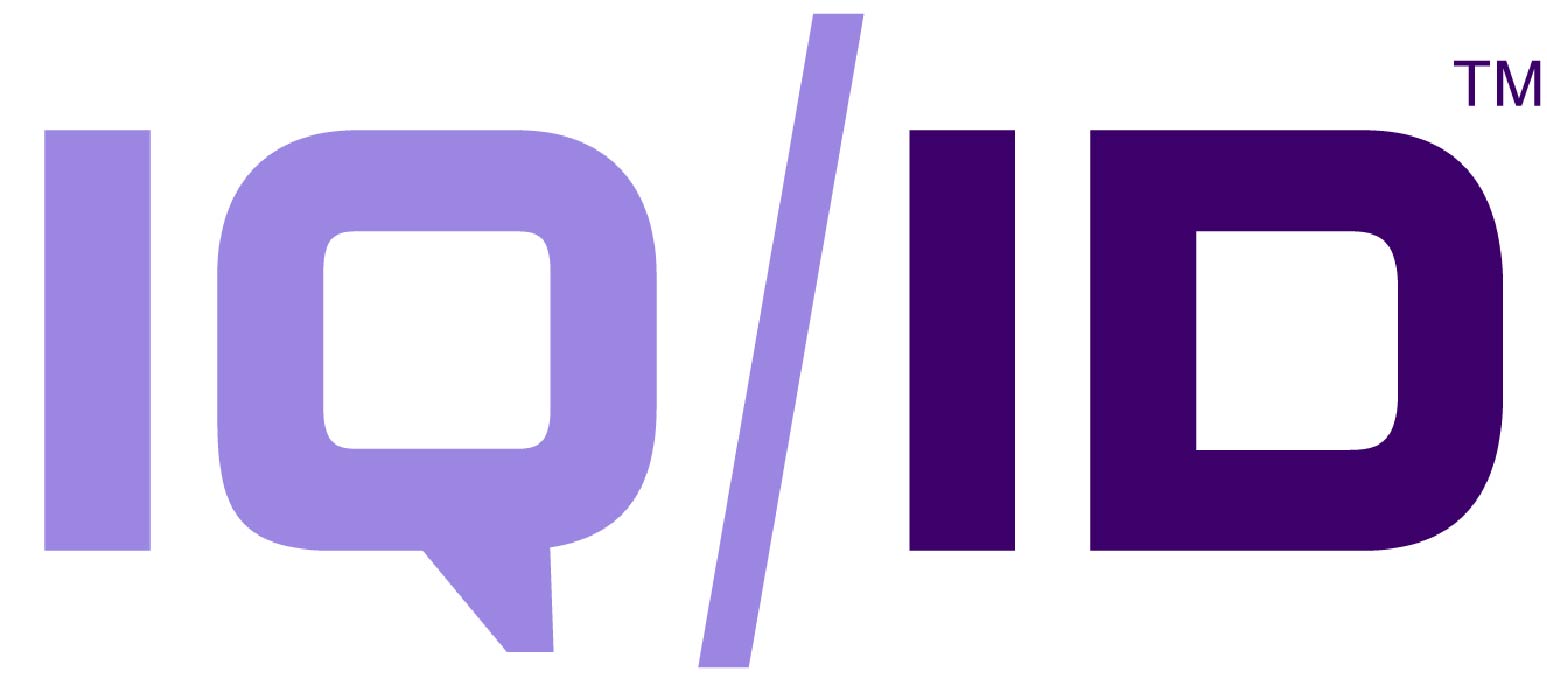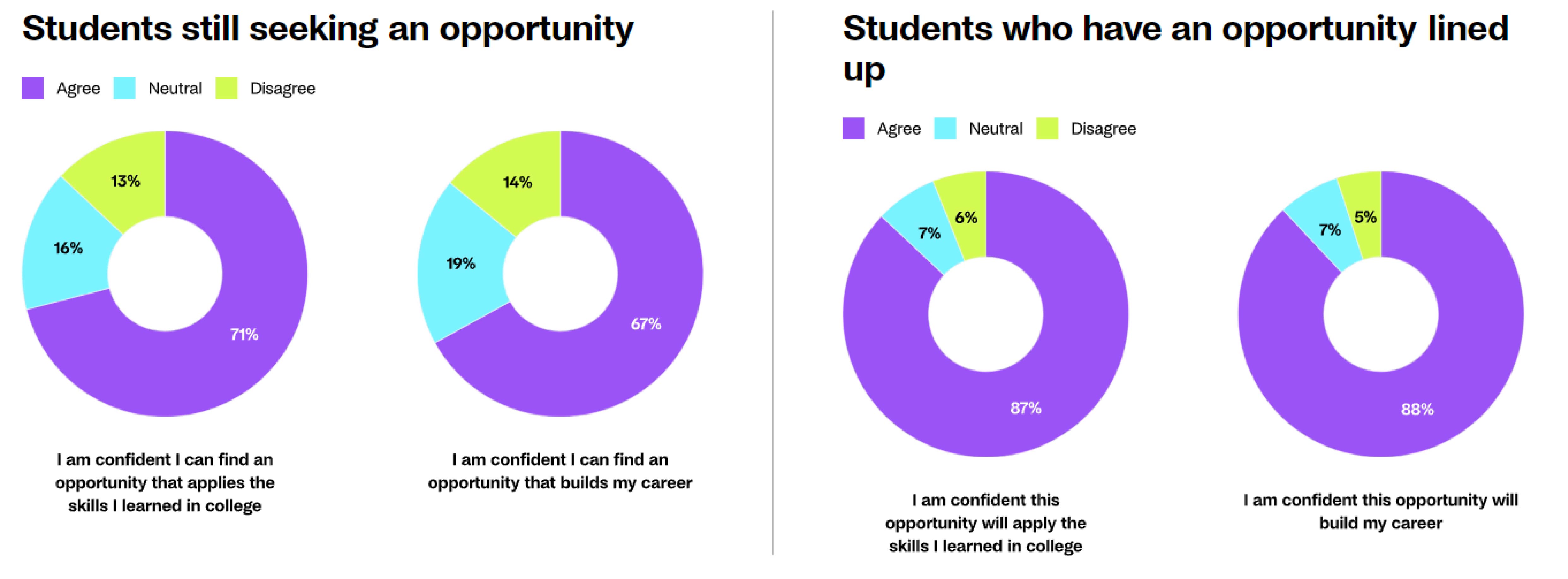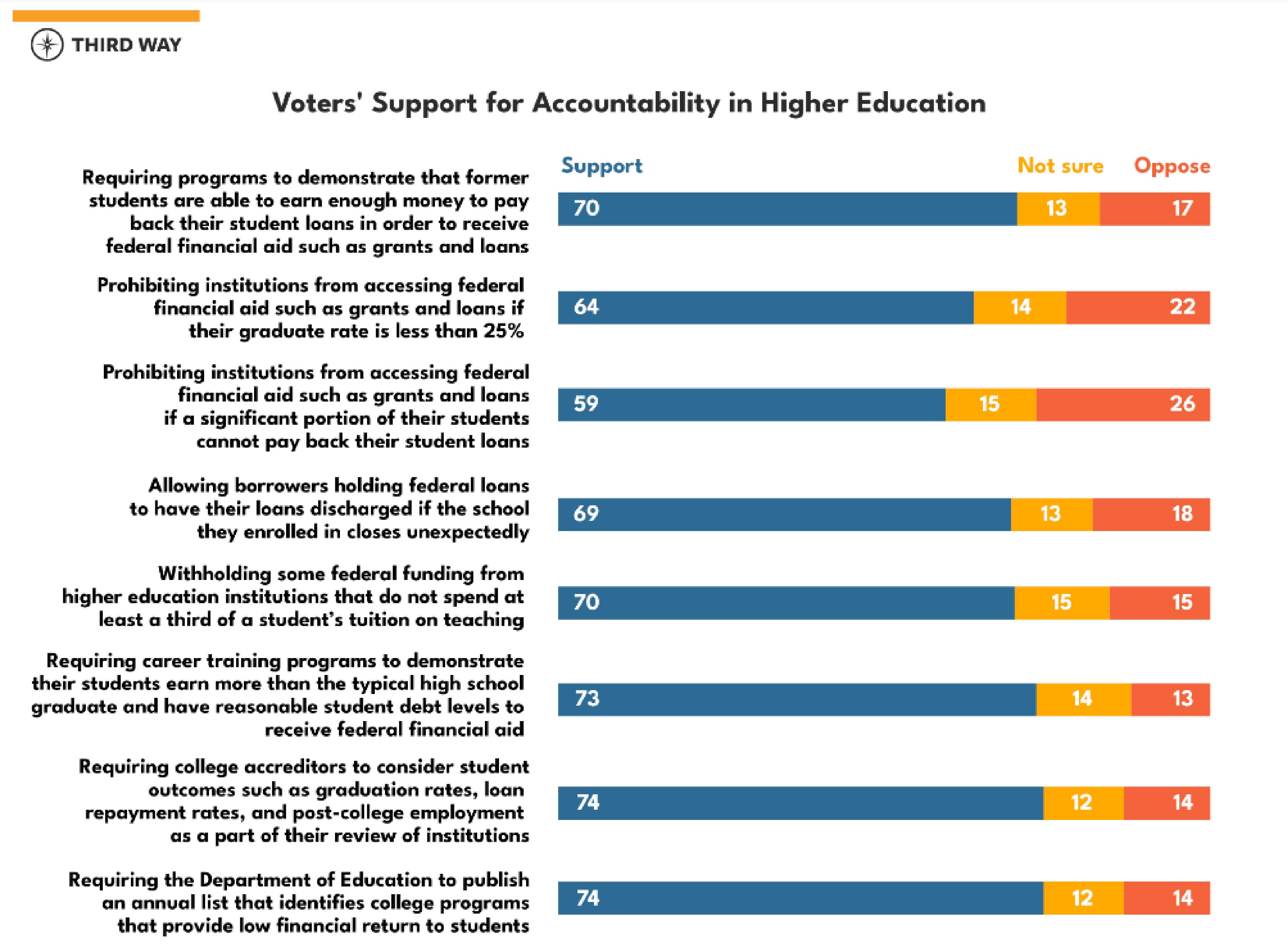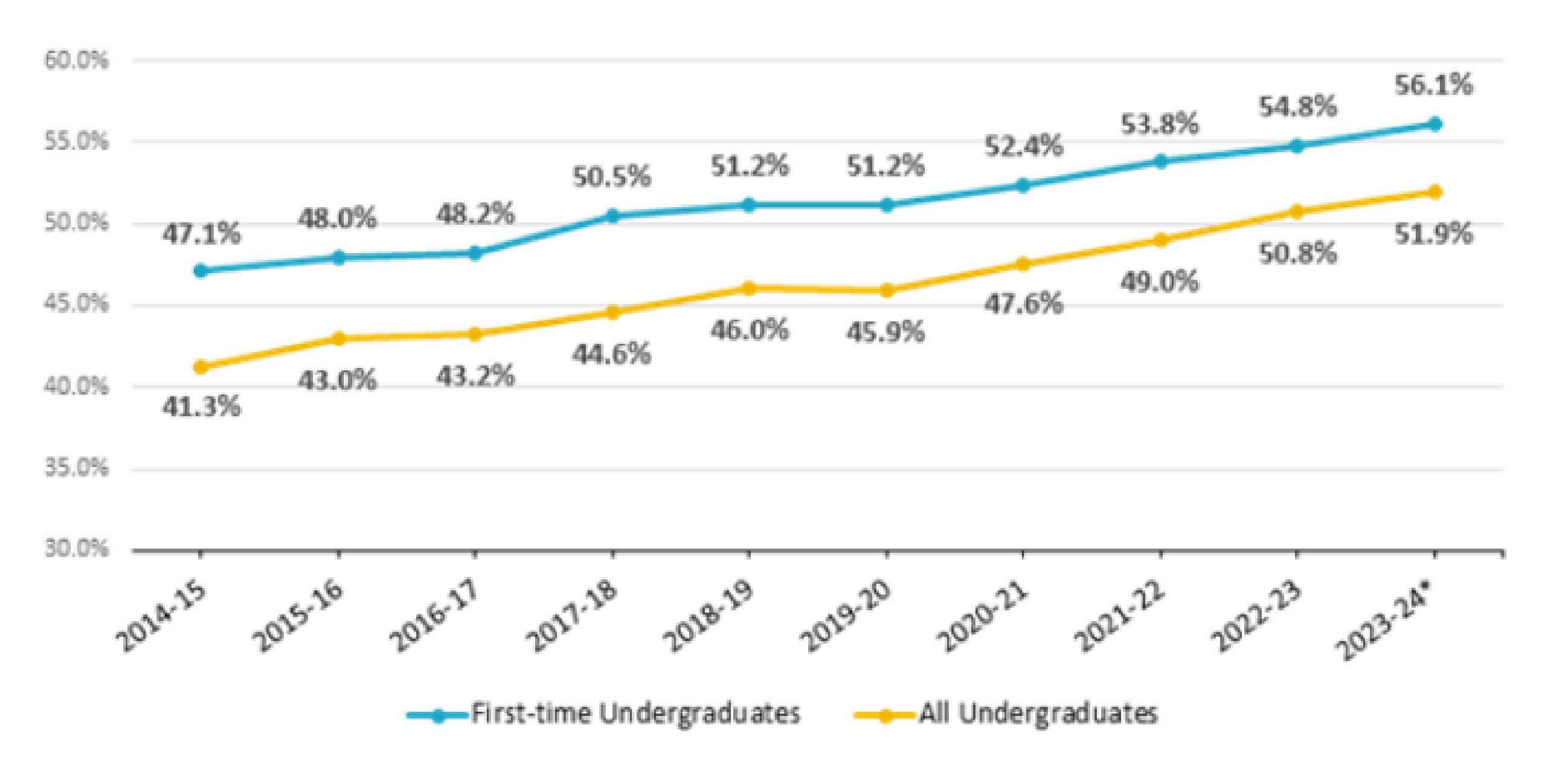May, 2024 Eye on Research
An Announcement in Lieu of a Commentary
The Department of Education recently released a “Dear Colleague” letter in response to questions about transcript holds. We are working on interpreting the information and will update the membership with answers soon.
On the same day this blog is released (May 29, 2024), we will hold a webinar at 2pmEST on transcript holds. We will share benchmarking perceptions about the impact of new transcript-hold related information and practice plans. During this same webinar, we will release AACRAO’s guidance on the use of partial-transcript holds. If you are unable to attend the webinar, it will soon be archived on the AACRAO website.
We understand the challenges of navigating changes in federal regulations and remain committed to providing our members with resources and support to plan a course of action.
AACRAO Research Update
Enhancing Accessibility and Inclusion: The 2024 Landscape of Credit for Prior Learning in U.S. and Canadian Higher Education
AACRAO, in partnership with CAEL, conducted a survey to benchmark CPL policy and practice. This report examines the current state of undergraduate credit for prior learning (CPL) in the U.S. and Canada. Its goal is to foster dialogue and action toward a more inclusive, effective higher education system. The report highlights the importance of acknowledging and integrating learning that occurs outside traditional academic environments.
Key points include the following.
-
82% of responding institutions offer one or more CPL pathways; 46% report an increase in pathways offered over a 3-year period.
-
Challenges for institutions include resource intensity, staffing constraints, lack of systemization, faculty buy-in and institutional awareness of CPL.
-
Recommendations for enhancing accessibility and inclusion include fostering a culture that values all forms of learning, allocating sufficient resources, developing clear policies and procedures, providing training, improving communication, investing in technology, promoting transferability of CPL credit, assessing impact on learner success and disaggregating data.
Institutional Perceptions and Plans Related to Transcript-Hold Regulation Changes
AACRAO is pleased to announce that on June 25, 2024, we will release a comprehensive report based on our recent survey regarding institutional preparedness for the upcoming federal regulation change on transcript holds.
The survey was distributed to AACRAO members and completed in collaboration with NACUBO. It dealt with topics related to the processes and policies of the registrar's and bursar's offices when dealing with unpaid balances. Institutions from states with, and without, transcript-hold bans participated, providing a broad range of insights.
We understand the challenges of navigating federal-regulation changes and are committed to providing our members with resources and support. Look for the release of our report on June 25th, as we work together to address the challenges and opportunities that lie ahead.
Informational and Level-of-Interest Gathering Virtual Roundtable
AACRAO Research held a roundtable discussion at the conference in early April 2024. From that discussion, an idea emerged to measure interest from our membership in two areas. The first suggestion relates to serving as a volunteer for a 2-3 year commitment to test comprehensive surveys before they are sent out, with some type of incentivization for doing so.
The second is to have a set group of institutions work with AACRAO to create and send out annually a survey to learners that aligns with a key initiative. We have found a learner perspective on key issues is an enlightening and useful addition to institutional benchmark data.
AACRAO worked with WICHE on their recognition of learning initiatives and was able to pair institutional benchmark data with learner perceptions. AACRAO also partnered with ACE for their National Task Force on the Transfer and Award of Credit paring benchmarking and learner perceptions. Finally, we partnered with the University of Arizona to examine factors that influence the number of excess credits at graduation and spoke with learners about their experiences.
Because AACRAO is about to release the CPL institutional benchmark, we believe this year is an ideal time to redeploy the survey on learner perceptions of CPL we used with WICHE to discover whether learner experience has changed since 2019. Having institutional partners share this survey with their learners would be ideal.
One or more 1-hour roundtable discussions will be held this summer to solidify these ideas. The date is to be determined. If you are interested in sharing your thoughts, please complete this form by June 14, 2024, EOD Eastern time to express your interest. Depending on the number of volunteers, we may need to limit the size of the roundtables. If selected, you will be contacted as time-and-date details are finalized.
Call for Participants

IQ/ID SURVEY ON ENROLLMENT MANAGEMENT/ADMISSION OFFICER CONCERNS
IQ/ID invites enrollment managers and admission officers to participate in an anonymous survey to help identify issues regarding the post-SFFA landscape, team turnover and other systemic issues impacting the profession. You can participate in this study by completing this 20-minute online survey. Please contact Allison Bahme, Solutions Architect for IQ/ID, with questions regarding this study at allison@iqid.io.
IQID Technology, Inc. is a venture-backed, higher education tech startup. We help enrollment leaders create excellent, inclusive student experiences by using AI to gather insights that improve their communication patterns.
Current Higher-Education Research and Related Topics
Survey Calls for Artificial Intelligence (AI) Policies in Higher Education
According to a recent Inside Higher Ed study of chief academic officers, there is an urgent need for institutional policies controlling the use of artificial intelligence (AI) tools, such as ChatGPT, in higher-education settings. Although most provosts recognize potential advantages of artificial intelligence, there are concerns about plagiarism and academic integrity due to learners' uncontrolled use of these tools.
The need to create AI regulations to protect academic integrity and take advantage of AI's pedagogical potential is widely acknowledged. Colleges and institutions must be proactive in creating clear policies to uphold academic standards and encourage the appropriate use of AI as its capabilities evolve. Some concerns stated by survey respondents include:
-
76% of provosts believe AI will be "very" or "somewhat" helpful for learner learning in the future
-
79% of provosts believe, without regulations, AI systems could facilitate widespread plagiarism and cheating
-
about 7% of universities have formal policies in place regarding AI
-
34% of institutions are in the process of developing guidelines
Learners Feel Confident about Using Their Higher Education to Be Successful in Their Career or Post-Degree Studies
A recent report from the career website Handshake provides insights into the mindset and readiness of the graduating class of 2024 as they prepare to enter the workforce or pursue further education. Soon-to-be graduates voice concerns about burnout, job satisfaction, financial security and the economy, despite being confident in their ability to apply newly acquired abilities. The report clarifies variables impacting the job application choice, changing career interests across disciplines and a willingness to consider nontraditional career paths, such as entrepreneurship.
-
71% of job-seekers and 87% of those with offers feel confident about using curricular experiences in their next stage. Figure 1.
-
Top concerns include burnout (61%), not enjoying work (54%), inability to advance (53%) and covering basic expenses (59%).
-
Learners are branching out from traditional roles for their majors; 73% expressed interest in entrepreneurship opportunities.
Figure 1: Confidence in Finding a Job or Postgraduate Opportunity
Source: Catching up with the Class of 2024. (2024). Handshake.com. Retrieved May 16, 2024, from https://joinhandshake.com/network-trends/class-of-2024-graduation/
Study Uses Racial Equity to Assess College Value
The Institute for College Access & Success (TICAS) has introduced a new Race and Economic Mobility (REM) metric to assess the true value of a college education by accounting for economic outcomes, based on an institution's racial composition. A recently released study shows differences between graduates from Hispanic-Serving Institutions (HSIs) and non-HSIs in terms of earnings, debt loads and earnings premiums. Results highlight the necessity of putting race at the forefront of college-value assessment and addressing structural injustices that keep marginalized groups' economic immobility alive.
-
Learners from 2-year HSIs earned 11% more than non-HSI counterparts.
-
Borrowers from 4-year HSIs owed a higher share of their original loan balances after 10 years, compared to non-HSI borrowers.
-
Both 2-year and 4-year HSIs had similar percentages of completers, with an earnings premium similar to their non-HSI counterparts.
-
The REM metric’s goal is to provide a more accurate assessment of college value by capturing economic mobility through a racial equity lens.
Community College Learners Need Better Career Preparation, According to New Report
A new report from the Center for Community College learner Engagement highlights the need for improved career guidance and experiential-learning opportunities at community colleges. A survey of over 83,000 learners across 199 2-year institutions found many learners lacked sufficient information about in-demand jobs, earning potential and skills needed for their desired careers.
Findings underscore the importance of proactively integrating career exploration into the community college experience to support learners' long-term economic mobility and align academic pathways with labor-market realities.
-
42% of learners stated their college provided little/no information about regionally in-demand jobs
-
46% received little/no data on average earnings for their chosen career field
-
learners using career services and participating in internships reported better career preparation
-
19% of learners completed an internship; providing these opportunities poses resource challenges
Case Study Focuses on Flexible and Remote Modalities for Graduate Instruction
This Case Study explores the increasing demand for flexible learning modalities, such as HyFlex (courses allowing learners to choose between in-person or online attendance), and remote-attendance options for in-person courses. The report presents findings from an exit survey of graduate learners at the University of Minnesota's Humphrey School of Public Affairs. Findings reveal learner preferences, experiences and perceived challenges with these modalities.
Study findings underscore the importance of proactive planning, updated classroom technologies, instructor training and clear policies to implement flexible options that enhance accessibility while maintaining an engaging learning experience.
-
97% of learners want options for virtual attendance moving forward, citing accessibility benefits like attending while sick or accommodating other health needs
-
learners preferred lectures (49%) and labs (33%) in the HyFlex format but favored fully in-person for discussion-based courses (57%)
-
key challenges include limited classroom technologies, instructors' proficiencies with tools/techniques for inclusive multimodal teaching and redesigning courses for new modalities
Recommendations emphasize gathering stakeholder feedback, increasing training and resources, updating learning spaces, developing institutional policies and providing instructional support for flexible courses.
Annual Survey Examines Attitudes toward Higher Education
The 2024 State of Higher Education (download required) study by Lumina Foundation and Gallup surveyed over 14,000 U.S. adults, aged 18-59, without a college degree. The survey included currently enrolled learners, those who previously stopped out before completing and those who never enrolled. The study found a widespread belief in the value of higher-education credentials, particularly for career advancement, and a growing interest in pursuing alternative pathways, such as certifications.
Significant barriers remain, however. Key points in the report include:
-
Credentials are highly valued by the vast majority.
-
59% of adults who are not enrolled have thought about enrolling in the last 2 years, an increase from previous years.
-
Present or potential learners pursue higher education mainly for career reasons, such as getting promoted or having more satisfying roles.
-
The primary obstacles to enrollment continue to be cost and lack of financial aid, but flexibility in course delivery is essential, particularly for nontraditional and stopped-out learners.
-
More than 33% of enrolled learners have recently thought about dropping out; emotional strain and mental-health issues were cited as more important contributing factors than money.
-
Approximately 16% of registered learners report feeling uncomfortable, disrespected, unsafe or discriminated against periodically in their program; this has had a detrimental effect on their opinion of the caliber of their education.
Study Explores Faculty Passion and Work-Life Balance and Their Relationship to Learner Success
The study, published in BMC Psychology, examines how faculty members' ability to control their emotions and work enthusiasm might enhance their professional well-being, increase their effectiveness as teachers and impact learner achievement. The survey was conducted among 401 Chinese faculty members who taught English as a foreign language in higher education. They stressed the necessity for professional development training that focuses on pedagogy and encourages excitement, emotional well-being and confidence in teaching abilities. Study results stress the significance of faculty mental health and its impact on their efficacy in the classroom. Five essential ideas emerged from the study:
- many faculty members rely on their own educational experiences or mentorship instead of professional teaching preparation
- work passion is characterized by an individual's excitement, delight and dedication to their undertakings and can enhance faculty well-being, motivation and effectiveness as teachers
- the ability to regulate one's emotions, experiences and expressions can help teachers become more resilient, which can positively impact learners' behavior in the classroom
- results indicate faculty well-being can predict teaching efficacy, which includes self-determination, autonomy, enthusiasm, resilience, persistence and occupational well-being
- training should support good teaching, with an emphasis on professional zeal, individual well-being, useful techniques for controlling emotions and creating a safe space for candor and candid conversations
Survey Examines Voters’ Perceptions of Higher Education in this Election Year
The survey conducted by Third Way with Global Strategy Group and GS Strategy Group reveals voters across the political spectrum recognize the challenges faced by higher education. Despite the perceived divide between left and right, there is a shared desire for reform. Figure 2. This reaffirms the value of higher education in preparing learners for good jobs and demonstrating that policymakers can deliver tangible results. Key points include the following:
-
higher-education challenges are significant but not insurmountable
-
voters on both political sides favor reforms that prioritize learner outcomes and hold institutions accountable for those outcomes
-
policymakers are not adequately representing voters’ interests, underscoring the importance of higher-education reform to reaffirm its value
-
critical objectives include preparing learners for well-paying jobs and demonstrating policymakers can deliver practical solutions
-
focusing on value in higher-education reform is a politically advantageous strategy for policymakers, taxpayers and, most important, learners
Figure 2: Voter’s Support for Accountability in Higher Education

Source: “Third Way,” n.d. https://www.thirdway.org/report/voters-want-less-talk-and-more-action-on-higher-ed-value.
Study Looks at Tuition Discounting at Private Nonprofit Colleges and Universities
The latest study from the National Association of College and University Business Officers (NACUBO) reveals the average tuition discount rate at private institutions exceeded 50% during 2023-2024. Institutional grants and merit scholarships are being used more often as a recruitment/retention strategy. Despite criticisms surrounding the practice of tuition discounting, institutions continue to prioritize affordability amidst economic and pandemic-related challenges.
Key points in the study include the following:
-
The average tuition discount rate reached historic highs, with 56% for first-time, full-time learners and 52% for all undergraduates at private nonprofit institutions. Figure 3.
-
Over 90% of undergraduates at these institutions received some form of institutional grant aid in 2023, reflecting the widespread use of tuition discounting as a recruitment and retention tool.
-
Tuition discounting raises concerns about diverting funds from learners with high financial need; however, institutions view it as a necessary component of their enrollment strategy, prioritizing affordability despite economic and pandemic-related enrollment challenges.
Figure 3: Tuition Discounting

Source: NACUBO. “Annual NACUBO Tuition Discounting Study Finds Financial Aid Awards and Undergraduate Enrollment on the Rise at Private Colleges and Universities,” n.d. https://www.nacubo.org/Press-Releases/2024/Annual-NACUBO-Tuition-Discounting-Study-Finds-Financial-Aid-Awards-on-the-Rise.
Report Captures Expert Panel’s Views of Trends Shaping the Future of Higher Education
Following the pandemic, higher-education institutions continue to encounter substantial obstacles and persistent disruptions. These factors encompass the decreasing public view of the importance of higher education and the necessity to prove its value in the face of dwindling learner enrollments.
The advancing functionalities of data analytics and the rise of generative AI present novel possibilities and dangers. AI offers the potential to revolutionize education in ways that many institutions do not completely understand nor have they accommodated.
This Horizon Report on Teaching and Learning from EDUCAUSE summarizes expert conversations about current and upcoming issues, offering a view into the possible future of higher education. Video summaries of each chapter of the report are also available. Some issues discussed include the following:
-
Despite talks of a return to "normalcy," higher-education institutions continue to confront challenges and disruptions in the post-pandemic era.
-
Public perceptions of the value of postsecondary education continue to decline, compelling institutions to demonstrate their worth and address declining enrollments.
-
The advancement of data and analytics capabilities presents opportunities and risks for institutions, necessitating careful navigation.
-
Generative AI holds the potential to revolutionize teaching and learning, but many institutions are unprepared for the transformative impact it may bring.
Study Evaluates a learner-Housing Voucher Program
A study by Education Northwest evaluated a housing voucher program at Tacoma Community College (TCC) in Tacoma, Washington. The program is designed to address housing insecurity among learners, which can be a significant barrier to persistence and academic success. This is often truer for community college learners who are more likely to be parents, have a limited income and attend nonresidential campuses.
The College Housing Assistance Program (CHAP) provided rent subsidies to eligible learners in an aim to improve overall well-being and academic outcomes. Figure 4. (A webinar is also available.) Key findings include:
-
eligible learners had to be enrolled, completing a minimum number of credits and prove their status as homeless or unable to meet basic housing expenses
-
vouchers to subsidize rent for private market apartments were provided, with learners receiving an average discount of $450 on $1,000 rent
-
positive outcomes included higher graduation rates, increased employment, improved food security and greater financial stability for those who used the vouchers
-
only 25% of learners used a voucher because of challenges in completing paperwork, finding suitable housing and providing upfront costs; TCC later established a fund to help learners pay security deposits
Figure 4: Graduation Rate Improvements

Source: Northwest, Education. “Homelessness and Housing Insecurity Among Community College learners Evaluation Report.” Education Northwest, n.d. https://educationnorthwest.org/publications/tacoma-housing-voucher-program-evaluation.
Report Highlights Continuing Racial Disparities in Degree Attainment
The American Council on Education's new report highlights the persistent racial and ethnic disparities in college degree attainment, despite increasing diversity among college learners. While educational attainment has risen across all racial and ethnic groups, increases for White and Asian learners have outpaced other groups, widening existing gaps.
The report shows a significantly lower percentage of American Indian or Alaska Native, Hispanic or Latino, Black or African American, and Native Hawaiian or Pacific Islander adults hold bachelor's degrees, compared to their White and Asian counterparts. These disparities extend to higher degree levels as well. Additionally, the report reveals differences in how undergraduates finance their education, with Black or African American learners being the most likely to take out loans. The report highlights the need to address these persistent disparities and ensure equitable access to higher education opportunities for all learners.
Report Discusses the Current Transfer Environment and Suggests Changes
A new report from The Center for Higher Education Policy and Practice (CHEPP) discusses barriers and costs associated with the current credit-transfer system in higher education, which fails to acknowledge the diverse pathways and experiences of today's learners. The report presents case studies of institutions that have implemented transfer-friendly practices, which have fostered a culture of flexibility, dedicated resources and partnerships to facilitate the credit-transfer process. Key points include:
-
current credit-transfer systems in higher education present barriers that lead to lost credits, increased costs and delays in degree completion for transfer learners
-
challenges include a lack of information, slow processes and institutional policies that reject or fail to apply transfer credits appropriately
-
costs associated with lost transfer credits extend beyond tuition and fees and include enrollment costs, human costs (such as suboptimal choices) and opportunity costs (lost wages and earnings)
-
institutions should create systems and practices to reduce costs, align institutional and learner interests and support learner success through credit recognition and transfer-friendly policies
-
case studies highlight successful transfer-friendly practices, such as a culture of flexibility, dedicated resources, partnerships and degree-program designs that incorporate diverse sets of credits